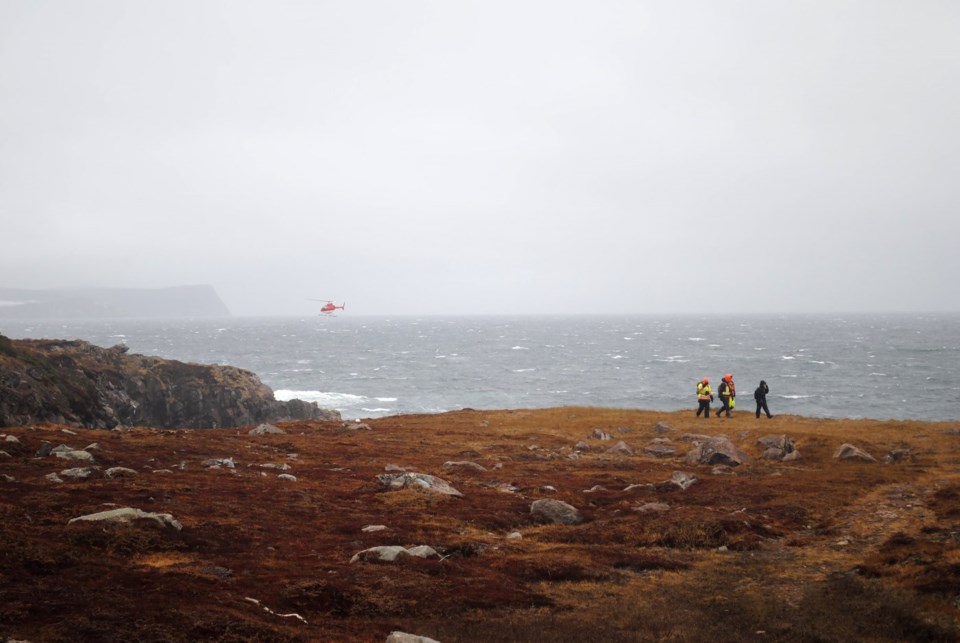ST. JOHN'S, N.L. — The search for a woman who was swept into the ocean on Wednesday at a popular eastern Newfoundland tourist destination has been declared a recovery mission after intensive rescue efforts proved unsuccessful.
First responders arrived at Cape Spear at around 4 p.m. Wednesday to find a man in his vehicle, soaked and in shock, who said he had been with the woman when she was lost, a St. John's fire department official said.
Paul Chaytor, deputy chief of operations, said a platoon chief who was at the scene reported that at the time of her disappearance waves were particularly large. Every now and then, one would roll in at a towering height and smash up high on the rocks. Chaytor said it's believed one of those waves — "almost like a rogue wave" — knocked the woman off the rocks and washed her out to sea.
"Newfoundland has a rugged shoreline. The rocks are slippery and the waves are unpredictable," he said Thursday in an interview. "You really need to be careful when you're approaching these areas because it only takes one lapse in judgment and you could be swept up."
Cape Spear is about 10 kilometres southeast of St. John’s, N.L., at Canada’s most easterly point. The shoreline is a mix of cliffs and wet, sloping rocks that nod down into the water.
Police said the man, who was treated for minor injuries in hospital, had also been swept into the ocean, but he managed to climb to shore. He lost his phone in the water, and used his vehicle's OnStar navigation system to send an alert. First responders arrived expecting a car crash, but when they got the full story, they called the Canadian Coast Guard.
The coast guard soon sent a helicopter and a fast rescue boat to help look for the woman, Chaytor said.
The helicopter was back in the air on Thursday morning as search and rescue officials walked slowly along the cliffs and scoured the churning surf below. It was bitterly cold and foggy, and the wind howled, stirring up the water and driving it into the rocks with force.
On Thursday afternoon, the Royal Newfoundland Constabulary announced that the search from air, land and sea was now considered a recovery mission. Officers had the lone road out to the Cape Spear lighthouse blocked off so rescue crews could work without interruption.
"I'm with the department now 30-odd years, and we have a lot of areas in Newfoundland that are quite dangerous," Chaytor said. "Unfortunately, these tragedies continue to occur, no matter how much signage we have in place or what information we put out there."
This report by The Canadian Press was first published Jan. 16, 2025.
Sarah Smellie, The Canadian Press



